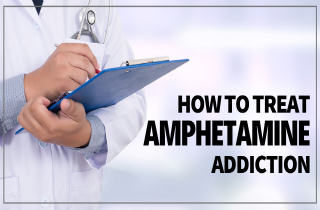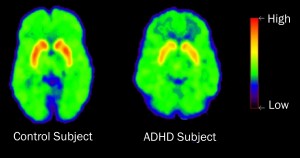ARTICLE OVERVIEW: Experts always recommended you ask for professional help when you deal with amphetamine addiction. This is because risk of relapse is extremely high. The main protocols during treatment use psychotherapy and have been proven to be successful in treating this type of addiction. Learn how to get help here!
TABLE OF CONTENTS
- How Do People Get Addicted?
- Brain Changes
- Signs of a Problem
- Am I Addicted?
- Rehab
- Treatment with Medications
- Treatment with Psychotherapy
- Stages of Treatment in Rehab
- Cost
- Who to Ask for Help
- Statistics
How Do People Get Addicted?
Amphetamines are stimulants that speed up the entire body system. The main drugs of abuse include Ritalin and Adderall that can be legally used in the treatment of ADHD, narcoleptic, and obesity, as well as methamphetamine, which is 100% illegal. But how addictive are they? And how does addiction happen?
The DEA has classified all amphetamines as Schedule II drugs meaning that they own a high potential for abuse, which may lead to psychological or physical dependence. Individuals who use amphetamines to treat their medical issues and follow doctor’s orders are less likely to become addicted than those who misuse them to get high.
In fact, many instances of addiction start as non-medical, recreational use. Many people can become addicted if they start to take amphetamines with the following modes of administration:
- Chewing.
- Snorting.
- Injecting.
- Taking larger doses than prescribed.
- Using amphetamines more often than prescribed.
Brain Changes
As stimulant drug, amphetamine makes the messages from your brain to your body move faster. As a result, you become more focused, and more active. These drugs act in a way similar to cocaine, and are also capable of increasing dopamine levels in the brain, which causes euphoric feelings. Moreover, amphetamines can stay in the system unchanged for longer period of time producing extending effects.
Over a period of time, your brain gets used to the presence of amphetamines. It adapts in order to continue to function. However, the brain also adjusts so that it can continue to operate. The brain sends chemical signals to “slow down” body functions to compensate for the stimulant effects of amphetamines.
After the brain accepts the amphetamine chemical state as “normal”, you’ve become physically dependent on amphetamines. Thus, when you lower the dose or stop taking it completely, the human system bucks. It needs the substance to function, and as your brain adjusts chemistry again to adapt to a non-drug state, you will experience withdrawal symptoms.
Moreover, amphetamine changes the structure of the brain. A study published in the academic journal Annals of the New York Academy of Science reports that amphetamines can destroy both brain’s gray matter and the dopamine receptors. This will change the brain function, which will make the individual’s ability to stop using the drug even harder.
Signs of a Problem
Even though symptoms of physical and psychological dependence can overlap, each condition manifests a unique set of characteristics. Physical dependence occurs after a period of regular dosing. Addiction occurs when you use amphetamines and lose control of use. In fact, long-term use of amphetamine can cause drug addiction, with is characterized by psychological compulsion to use.
To recognize addiction, one or more of these symptoms is commonly present:
- Lost ability control amphetamine use (using higher doses than wanted, or using amphetamine more frequently than expected).
- Continued use of amphetamines despite personal problems, dysfunction at work, home, or social.
- Cravings and compulsion to use amphetamine, accompanied by physical and psychological triggers.
The National Institute on Drug Abuse defines addiction as: Addiction is a chronic disease characterized by drug seeking and use that is compulsive, or difficult to control, despite harmful consequences. In other words, if you try to quit and can’t…you may be addiction. Or, if you stop for a period of time but then return to using amphetamines, you may have a problem.
Take hope. Problems with amphetamine respond to medical treatment. Addiction is a medical condition. It can be treated!
Am I Addicted?
Amphetamines have a high addictive potential. If you are wondering whether you have a problem or not, take a look into these signs of addiction:
- Continued use of the drug regardless of how it affects you negatively.
- Feeling like your body needs amphetamine to function normally.
- Obsessive thinking about or craving amphetamine.
- The presence of withdrawal symptoms when you stop taking amphetamines.
- Using amphetamine every day.
Do you show any of these signs? If yes, consult with an addiction specialist.
Moreover, if you are still not sure, take a look into these free NIDA drug screening tools. They have been made for doctors but can also be accessed by anyone online. This way, you might figure out whether an amphetamine use problem is present…but always follow a self-assessment with a doctor’s assessment in a face-to-face appointment. You can ask for help from:
- A family doctor.
- A general physician.
- An addictions specialist doctor.
- A psychologist or psychotherapist.
- A psychiatrist.
- A treatment center for drug addiction.
Rehab
So, is rehab for you?
In most cases, we think that anyone with an amphetamine problem can benefit from professional help. Research indicates that it takes about three (3) months of treatment for serious users to significantly reduce or stop taking amphetamine, though best results occur after a longer period of time spent in treatment. In fact, best outcomes in terms of long term addiction recovery occur with longer durations of treatment. This, in part, is due to how long amphetamines stay in your system.
Q: Why is treatment needed?
A: Longer duration of euphoric effect can trigger major cravings for amphetamines, even weeks or months after last use.
Still, any rehab program should be customized to fit your needs. In fact, a one-size-fits-all approach IS NOT appropriate for any kind of drug addiction. Instead, combined methods of addiction treatment should be built into any treatment program.
Furthermore, a good drug addiction treatment attends to every single need of the individual, not only those involving acute drug use. Emotional support, steps for social inclusion, and medical support (access to both over-the-counter and prescribed medications) are also included in addiction treatment best practices. Treating addiction to amphetamines can include the following:
1. Medications for amphetamine addiction treatment.
Medications are an important element of treatment for many people, especially when combined with counseling and other behavioral therapies. Unfortunately there are no approved medications that treat amphetamine addiction. However, the development of such medication is a high priority. There are some trial evidences saying that the antidepressant Bupropion, marketed as Welbutrin, is effective in reducing amphetamine abuse only in low and moderate users. Vaccines are also under investigation, as possible treatment to disable or block amphetamine’s effects on the central nervous system.
2. Behavioral treatments for amphetamine addiction.
Behavioral therapies, including individual, family, or group counseling, are the most commonly used forms of treatment. All behavioral treatments prepare you for a life-long recovery. Such therapy actually has a wide range of targets to cover. Types of behavioral treatment for drug addiction include:
- Building personal skills.
- Facilitating better interpersonal relationships.
- Improving problem-solving skills.
- Investigating motivation for positive and permanent change.
- Participation in group therapy and other peer support programs.
- Providing incentives for abstinence.
- Replacing drug use activities with constructive and rewarding activities.
Further, the Matrix Model is 16 weeks outpatient cognitive-behavioral approach, has helped thousands of amphetamine addicts. Another treatment for amphetamine addiction is called Motivational Incentives for Enhancing Drug Abuse Recovery (MIEDAR), an incentive-based method for promoting abstinence.
Treatment with Medications
Medications in addiction treatment usually aim to help resolve withdrawal symptoms as well as psychological cravings. At the moment, no medications have been formally identified by the FDA for treatment of amphetamine dependence. Still, some medications that are used for amphetamine addiction can target the nervous system, while the-over-the-counter medications deal with physical symptoms.
Some of the most commonly used medications include:
Antabuse (disulfiram): Mainly used in alcoholism treatment, but has also been proven to be effective in treating stimulant withdrawal symptoms.
Baclofen (lioresal): A GABA receptor antagonist that inhibits the release of several neurotransmitters such as dopamine, glutamate, and noradrenaline.
Benzodiazepines: Sedatives that manage withdrawal symptoms.
Norpramin (desipramine): A tricyclic antidepressant that is used to address the major withdrawal symptoms.
Vistaril (hydroxyzine): An antihistamine that treats itchiness, motion sickness, nausea and vomiting.
Since there are no medications that are used to treat stimulant addiction, many therapies used for other addictions are currently in trial. For instance, disulfiram used in treating alcoholism, has proven to be very effective in treating cocaine addiction.
Treatment with Psychotherapy
Psychotherapy – or talk therapy – takes place in the weeks after detox. The goal of psychotherapy is to help individuals get to the root mental and emotional causes for drug use. This way, they can work on past trauma in a way that is not self-destructive. Further, psychotherapy teaches you how to avoid relapse and adopt healthy lifestyle changes.
The most comment psychotherapies include:
- Cognitive Behavioral Therapy (CBT).
- Contingency Management (CM).
- Motivational Enhancement therapy (MET).
All therapies have shown effective results in treating amphetamine addiction, and can be implemented in both individual and group settings.
Stages of Treatment in Rehab
Admitting you need help is the first step to treating any addiction. Then, you can benefit from a stay in rehab. What is the general course of treatment for amphetamine addiction?
STAGE 1: Assessment and Evaluation.
This is the stage that prepares you for the treatment. First, you will fill out some paperwork, and then the medical staff will evaluate you physically. You’ll also be asked to answer standard interview questions. Many rehabs use evidence-based screening tools for addiction. The goal is to conclude the severity of your addiction that will help in creating your individual treatment. This stage can last 1-3 hours and includes:
- A physical examination
- A mental evaluation
- A medical history
- A family history
- Drug testing
- Interview questions
STAGE 2: Medical Detox.
After you quit, you may experience harsh withdrawal symptoms that may require medical assistance. High-dose or long term users are in danger of hallucinations or delusional thinking. Suicidal ideation is also common. Take hope! These states are temporary. But because of serious nature of amphetamine withdrawal, medical intervention is always recommended.
STAGE 3: Rehab and Therapies.
Psychotherapy is the backbone of all interventions for this type of addiction. Not only does talk therapy help individuals learn how to live substance-free live and how to adopt healthy habits…the process digs into the deeper patterns of self-harm caused by past trauma. Some of the most used psychological treatments during this stage include:
- Behavioral Therapy
- Individual Therapy
- Group Therapy
- Family Counseling
STAGE 4: Aftercare.
Aftercare consists of ongoing counseling therapies that can last from several months to years. Additionally, you may benefit from sober housing and coaching or mentoring. The main idea is that treatment does not stop once you complete a rehab program. It continues for your entire life. Learning to live without stimulants and getting high is a lifelong journey. Making the bridge to a new life is incredibly helpful!
Cost
Treatment costs are divided into two main categories: inpatient and outpatient services. Inpatient programs are more expensive because they offer constant medical care and can include medical detox. Counseling or psychotherapy remain consistent throughout treatment. The average costs for treating amphetamine addiction are:
Counseling therapy: $50- $150 + per hour.
Detox program: $6-12K per treatment episode; often $500+ per day.
Outpatient program: $100-$150 per day.
Inpatient program: $500-$700 per day.
If you like to know more about the cost of rehab, click here.
Who to Ask for Help
Where do you go to get treatment for amphetamine addiction? When it comes to getting familiar with n treatment facilities, you need to know who is who. Here, we offer you a list of places to start. Bear in mind the fact that many treatment programs offer complementary treatments.
1. Amphetamine addiction treatment centers are facilities that administer outpatient or inpatient (residential) programs, where staff experienced in the area of drug addiction address addiction issues directly via counseling, education sessions, and support groups.
2. Amphetamine detox clinics are medical private or state clinics, specialized in overdose, detoxification, withdrawal and side-effects of chronic drug use. They will primarily apply medical support for your needs and practice social and emotional support in the meantime.
3. Clinical psychologists specializing in amphetamine addiction treatment are therapists that communicate directly with clients and who guide treatment using many different practice techniques. The goals of psychotherapy are to adapt positive behaviors in the place of former, unhealthy patterns.
4. Amphetamine addiction support groups are local, national or international community-based associations that network with current amphetamine treatment patients, empowering them and raising awareness about acceptance of addiction problem, through the form of group discussions.
5. Personal contacts include many individuals throughout your community who can help you. Reaching out for help can be a good place to start addressing the signs of amphetamine addiction and the need for treatment. Licensed clinical social workers, private physicians, trusted religious or spiritual leaders can listen to your needs and refer you to services that can help.
Statistics
Are you alone in your struggle?
Of course not! According to the 2016 National Survey on Drug Use and Health there are 1.7 million people aged 12 or older that are currently misusing stimulants such as amphetamines. The age division goes like this:
- 92,000 adolescents aged 12 to 17 were current misusers of stimulants.
- 767,000 young adults aged 18 to 25 who misused stimulants.
- 876,000 adults aged 26 or older were current misusers of stimulants.
Moreover, the same report estimates that 540,000 people aged 12 or older had a stimulant use disorder in 2016. The breakdown by age is:
- 56,000 adolescents aged 12 to 17.
- 170,000 young adults aged 18 to 25.
- 315,000 adults aged 26 or older.
Additionally, the 2013 DAWN report on Emergency Department Visits Involving Attention Deficit/Hyperactivity Disorder Stimulant Medications stated that the number of ED visits between 2005 and 2010 increased from 13,379 to 31,244.
Need we say more? Break your cycle of thinking that you are alone… you are not! Seek help for your substance abuse problem ASAP!
Any Questions?
If there’s more you would like to know, like a specific type of treatment for drug addiction, feel free to ask us here. We respond to all legitimate questions with a personal answer as soon as possible.











Related Posts